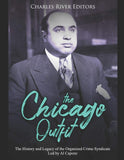Criminal Law & Procedure: A Background on the Elements of Crimes and the Rights of Defendants
ISBN: 9781508927839
$6.99
*Includes a table of contents The United States has one of the most technically sound criminal justice systems in the world. Mostly derived from English common law, the U.S. Constitution explicitly lays out when and how a citizen can be searched and arrested, as well as their other rights to trial. But, as with many of the Constitution’s powers, the experiences of the colonists at the hands of the British shaped our legal system’s criminal procedure laws. Like most of American jurisprudence, American criminal law is rooted in the early American settler's experience with British law. In fact, when Thomas Jefferson drafted the Declaration of Independence and listed the “repeated injuries and usurpations” of the British monarchy, he named no less than five alleged offenses implicating the criminal justice system. Jefferson noted the King had “refus[ed] his assent to laws for establishing judiciary powers,” and he had “made judges dependent on his will alone.” Jefferson also accused the British of conducting “mock trials” to protect their own soldiers who had committed crimes against the colonists, while depriving colonists of the rights to a trial by jury of their own peers. Criminal procedure is a subset of constitutional law that focuses on the procedures by which authorities investigate, prosecute, and adjudicate crimes. Criminal procedure rules frame the behavior of police, prosecutors, and judges when they seek to apprehend, charge, and convict those suspected of committing a crime to ensure that the suspect's constitutional rights are protected. After the colonists won the American Revolution, the Framers set about creating a Constitution that addressed all of these issues. Most of them are addressed in the 4th-8th Amendments of the Constitution.




